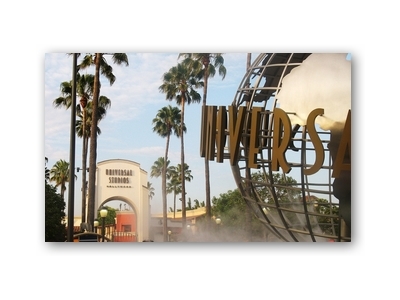What Makes Hollywood Run? Capitalist Power, Risk and the Control of Social Creativity
McMahon, James.
(2015).
Unpublished PhD Dissertation. Graduate Program in Social and Political Thought. York University. November.
(Thesis; English).
![[img]](http://bnarchives.yorku.ca/463/8.hassmallThumbnailVersion/20151111_mcmahon_phd_front.jpg)
|
Cover Image
20151111_mcmahon_phd_front.jpg Download (70kB) | Preview |
|
|
PDF (Full Text)
20151111_mcmahon_phd.pdf Download (2MB) | Preview |
Abstract or Brief Description
This dissertation combines an interest in political economy, political theory and cinema to offer an answer about the pace of the Hollywood film business and its general modes of behaviour. More specifically, this dissertation seeks to find out how the largest Hollywood firms attempt to control social creativity such that the art of filmmaking and its related social relations under capitalism do not become financial risks in the pursuit of profit. Controlling the ways people make or watch films, the thesis argues, is an institutional facet of capitalist power. Capitalist power—the ability to control, modify and, sometimes, limit social creation through the rights of ownership—is the foundation of capital accumulation. For the Hollywood film business, capitalist power is about the ability of business concerns to set the terms that mould the future of cinema.
The overall objective of Part I is to outline and rectify some of the methodological problems that obscure our understanding of how capital is accumulated from culture. Marxism stands as the theoretical foil for this argument. Because Marxism defines capital such that only economic activity can create value, it needs to clearly distinguish between economics and politics—yet this is a distinction it is ultimately unable to make. With this backdrop in mind, Part I introduces the capital-as-power approach and uses it as a foundation to an alternative political economic theory of capitalism. The capital-as-power approach views capital not as an economic category, but as a category of power. Consequently, this approach reframes the accumulation of capital as a power process.
Part II focuses on the Hollywood film business. It investigates how and to what extent major filmed entertainment attempts to accumulate capital by lowering its risk. The process of lowering risk—and the central role of capitalist power in this process—has characterized Hollywood’s orientation toward the social-historical character of cinema and mass culture. This push to lower risk has been most apparent since the 1980s. In recent decades, major filmed entertainment has used its oligopolistic control of distribution to institute an order of cinema based on several key strategies: saturation booking, blockbuster cinema and high-concept filmmaking.
[This thesis was nominated for the York University Dissertation Prize.]
Language
EnglishPublication Type
ThesisKeywords
cinema creativity Hollywood film business political economy power riskSubject
BN PowerBN Region - North America
BN Agency
BN Business Enterprise
BN Capital & Accumulation
BN Civil Society
BN Culture
BN Distribution
BN Industrial Organization
BN Institutions
Depositing User
Jonathan NitzanDate Deposited
13 Nov 2015 17:34Last Modified
09 Apr 2016 21:38URL:
http://bnarchives.yorku.ca/id/eprint/463Commentary/Response Threads
- McMahon, James What Makes Hollywood Run? Capitalist Power, Risk and the Control of Social Creativity. (deposited 13 Nov 2015 17:34) [Currently Displayed]
Actions (login required)
 |
View Item |

